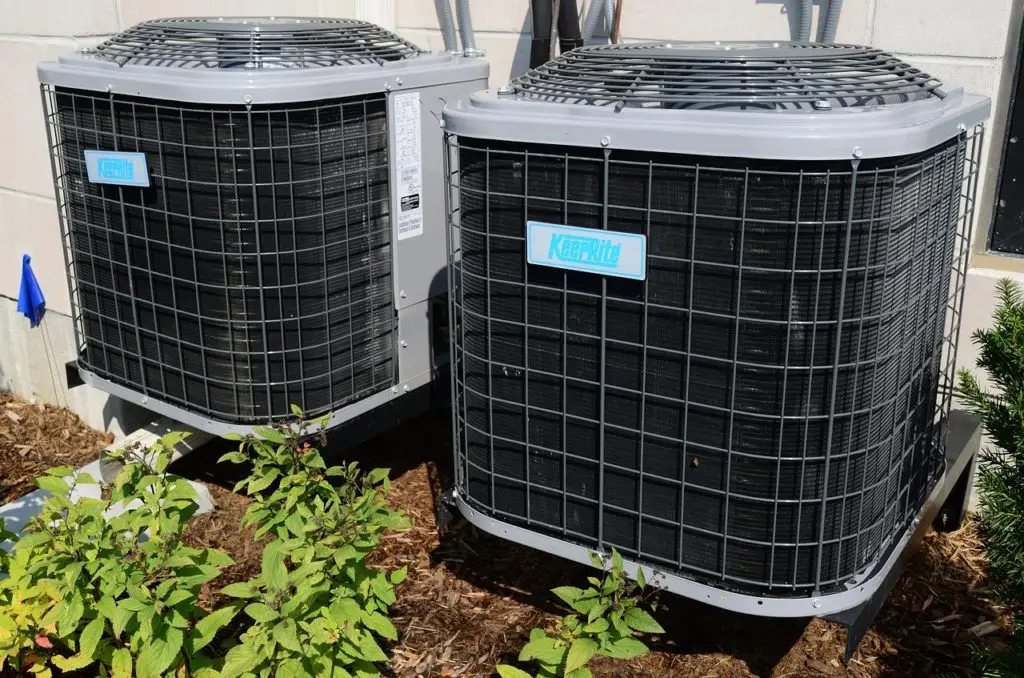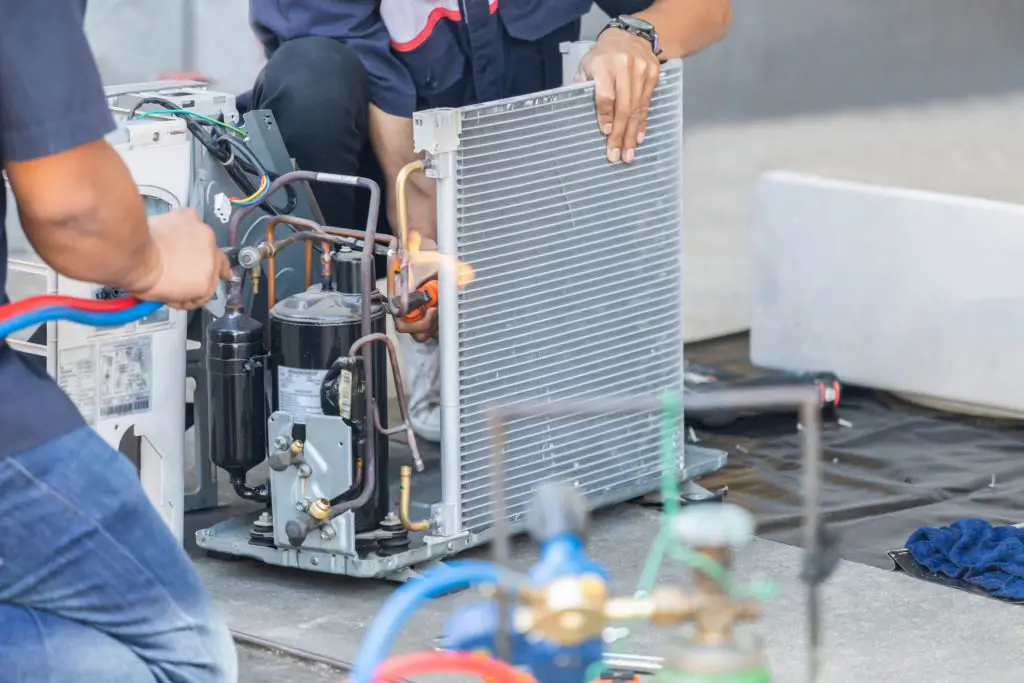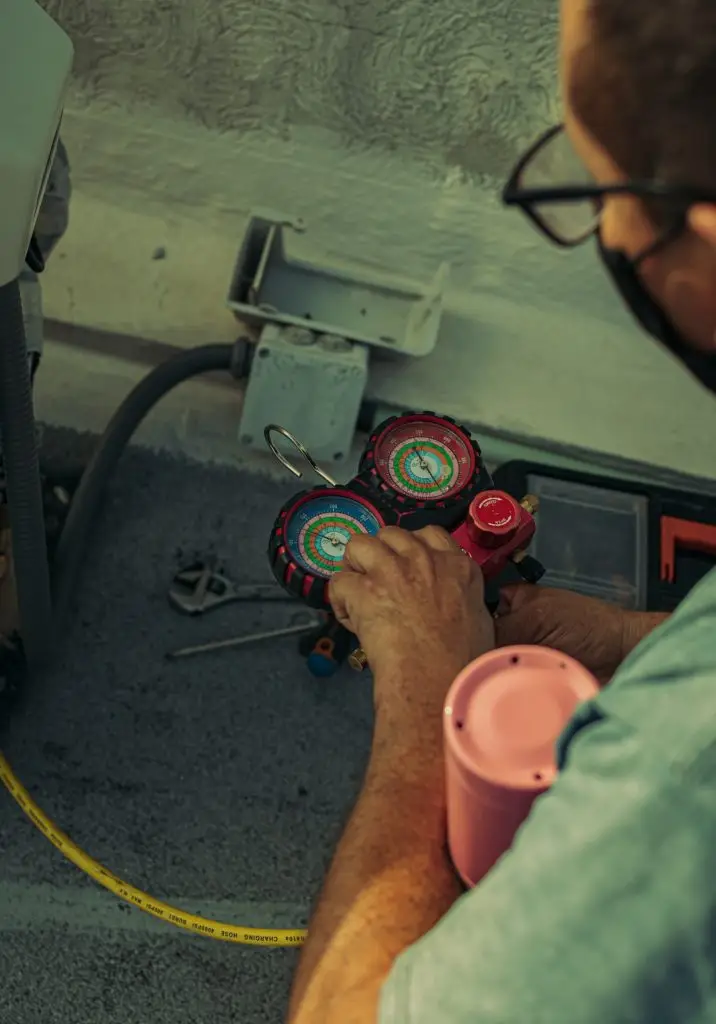FAQ
call for free quote and questions
- +1 909-360-6294
What is the difference between a HVAC Dealer or Non Dealer?
The difference between a dealer and a non-dealer HVAC contractor is not that significant. Both are licensed contractors and can purchase brand name equipment. A dealer buys a specific brand of equipment from a certain supplier, receiving a discount and access to exclusive equipment that non-dealers do not. However, this does not mean that non-dealers cannot buy comparable equipment. Non-dealers purchase various types of brand name equipment from multiple suppliers, which they rely on and trust
Should I buy from a HVAC Contractor that is a dealer or non dealer ?
The ability of both dealers and non-dealers to install a quality central HVAC system depends more on the quality of the installation than the brand of the equipment. A particular brand name does not guarantee a quality job in itself. Most of the top name brands you know and trust actually manufacture most of the HVAC equipment available on the market today. When shopping for an HVAC system, getting three estimates is a good rule of thumb. Additionally, it’s important to check the installer’s qualifications. Selecting the right HVAC system is crucial for ensuring efficiency and comfort. Professional installation guarantees the system performs at its best and meets all safety standards
12 Most Frequently Asked Questions
General Questions
Every 6 months is a good rule of thumb, depending upon how many months you use your air conditioner and heater throughout the year. If you use your HVAC system year around; or, you are sensitive to dust then you might want to consider replacing your filter every 3 months, when you are using pleated and non pleated filters.
If you have a HEPPA filtration, electronic air cleaner, UV purifier or humidifier system, it’s recommended to service them and get them checked out by a licensed/certified technician to put you on a maintenance schedule.
For residential applications it’s recommended that you service your HVAC system at least once a year, if you have a Heppa filtration or any type of combined air purifier its recommended to service your system ever 6 months.
Minimum Efficiency Reporting Value, commonly known as MERV, is used to determine the filtration particulate value. Aside from that technicians use the static pressure values of the filter to determine what MERV rating your system can handle, because it can cause issues with the blower motor, capacitor and circuit board fan controls. So by installing higher MERV rated filters above what is recommended by your technician. It can create a higher static pressure across the blower motor and it can fail prematurely. MERV 9 filters are recommended for standard operation and filtration. If you suffer from allergies and need higher filtration it is recommended that you call an HVAC technician to check your system capabilities.
It’s normal for air conditioners to produce condensation at the evaporator coil. now depending on where the condensation is going should raise some concerns. Most furnace/air handlers that are located in a closet on the first floor have a primary drain that is piped to the outside of the house. It would be normal to see water dripping out that tube. Furnace/air handlers that are located on the second floor or the attic, have a primary drain piped under a sink or to some plumbing fixture bellow grade. They would also have a secondary drain line piped to a conspicuous area. Like above a window or doorway to the exterior of the house. If you see water dripping out this pipe, this is an indication that the primary drain line is clogged and needs service. Some of the older systems evaporator coils have metal drain pans which tend rust out and leak. in time if left unattended this can cause water damage to floors and ceilings. Other measures can be taken such as installing condensation overflow safety shut off switches and secondary evaporator drain pans that will give added protection against these issues, as they are designed to shut off the condenser so that condensation stops being produced. Part of a regular routine maintenance can catch issues like this, before it gets serious.
US Department of Energy recommends to 78 degrees during summer months. However, if your ac systems cycles off and on quite frequently or you have a variable speed systems you may be able to set your thermostat to 75-76 degrees and still maintain energy efficiency.

Services Info
Every HVAC contractor has there own specific way to perform a routine maintenance which is usually some type of point inspection list that there technicians follow. Here is a list of what our technicians check:
- Clean washable filter then replace.
- Replace old filter with new filter and date it.
- Check primary and secondary condensate drain free flowing.
- Inspection evaporator secondary drain pan.
- Check temperature differential at supply and return plenums for 20 degree split.
- Inspect blower, blower wheel, fan motor and fan blade for imbalance, loud noises.
- Inspect heat exchanger for cracks or air coming out through the burner area.
- Test amperage and voltage on all motors and compressors and compare to RLA.
- Inspect area around furnace for combustibles.
- Tighten all electrical connections and check all contactors, relays and transformers for abnormal buzzing.
- Perform a static pressure test with a monometer.
- Measure the temperature heat rise to airflow and adjust gas valve if necessary.
- Test Heating cycle for proper and safe operation.
- Test safety switch operations.
- Test for gas leaks.
- Test for carbon monoxide.
- Test furnace exhaust for proper venting.
- Inspect ducting in attic for tears, crushed pipe, dislocated pipe and dirty insulation around wye branch and fittings for indications of leaks.
- Clean condenser coil.
- We do not put gauges on a condenser unit unless some of the above listed items do not check out. If your system is tight with no leaks and running fine we like your refrigerant to stay as clean as possible.
If your air conditioning system is working but not cooling effectively and your not sure if you should call a licensed ac contractor, there are a few tests you can do to determine how your ac is working.
- Before testing make sure outdoor temperature is at least 85 degrees. Most air conditioner work fine under 85 degrees then struggle when temperatures rise above that if your system isn’t performing properly.
- Make sure your filter is clean from dust and debris. Dirty filters can cause restrictions in the air flow which equates to less air less cooling.
- Make sure all your supply registers are fully open, some times registers are closed off to redirect airflow. This can cause less over all airflow through out the rest of the system and reduce performance dramatically.
- Use a thermostat at a supply register and a return air grill that is closest to the furnace or air handler, take a few minutes to get an accurate reading on both the return and supply. The difference between the two should be at least 20 degrees plus or minus 3 degrees. If so, and still not cooling, there could be issues with ductwork.
- If you have over plus 3 degrees there could be an issue like low airflow, under minus 3 degrees there could be an issue like low refrigerant.
- This only applies to a single stage system because variable speed and 2 stage system operate on lower differences in temperature at different stages but those system have smart technology running them, and they usually fault and error code if there is something significantly wrong with there performance.
- If you notice that your supply register have condensate on then while your system is running and are rusty you can possibly have issues with air flow or system capacity.
There are many factors that contribute to air flow problem. but one thing that is always certain is that air likes to travel the path of least resistance, so rooms that are closer to the furnace or air handler typically get more airflow. This can be corrected by using balancing dampers to close off some of the air vents closest to the furnace. Other internal issue are:
- Ducting in general can be undersized. Rooms that are far away and when the ducting is to small, the air tends to lose momentum once it gets to the register and fizzles out. This problem can be easily remedied by increasing the size of the duct pipe and register or by adding a booster fan if some conditions are met.
- There’s just not enough return air because some furnaces/air handlers are located in a closets and are limited. If your not getting enough air, you certainly cant give it. So you can only get what the return air grill can deliver. Certain things we do to mitigate this problem is to relocate the system to the attic, then we can take full advantage of all the air the furnace/air handler has to offer and design a really comfortable system.
- Another is measure the existing return air capabilities, then discuss with the clients which room(s) would be most important to keep and which can be eliminated. Then re-design the supply duct system to cater to those specific rooms and make them really comfortable. Would it be better to have a few really comfortable rooms in the house, rather than a bunch of rooms that are barely satisfactory.
- Rooms that tend to go unnoticed if they have air in them or not are bathrooms, kitchens and laundry rooms which homeowners with airflow issues usually close them off anyway.
The most common reason an air conditioner may freeze up, is due to a dirty filter. This slows down the air flow across the evaporator coil. With out getting to technical. think of it this way. Water freezes at 32 degrees. An air conditioning evaporator coil operates at 40 degrees. Water trickling down a 32 degree evaporator coil will freeze. Water trickling down a 40 degree evaporator coil will not freeze. So the slower the air moves across a 40 degree coil the temperature of the coil will drop, and as the air continues to get slower and slower till finally the temperature of the coil reached 32 degrees freezing. Other issues like low refrigerant, dirty evaporator coils, faulty blowers, high MERV rated filters on an already high static system, Very restricted ducts. These other issues should be addressed by a licensed HVAC contractor.

hvac systems
There are 4 type of residential heating ventilation & air conditioning systems are:
- Split system ducted- A split system has a furnace/air handler and evaporator coil that are separated from the condenser with a refrigerant lineset. Ducting can be standard or zoned.
- Hybrid systems- Hybrid system can have a combination of different systems Installed in 1 building. Gas, heat pump, water source, ducted and ductless.
- Mini-split ductless system- Is a heat pump system that has individual ductless air handlers located in desired rooms and separated from the condenser with a refrigerant lineset.
- Package system-A package system can be gas or heat pump with the furnace/air handler, evaporator and condensing unit all packaged up and contained in one piece of equipment usually found on commercial roof tops or residential houses with flat roofs. Standard ducting.
If your not sure whether or not you need to replace your old system here are a few reasons that can help you consider if purchasing a new system will be a better investment.
- Is your system more than a decade old. Parts aren’t usually in stock for older equipment and may have to be special ordered so repairs can be very pricey.
- Are you paying higher than normal utility bills.
- Did you notice your home isn’t cooling or heating like it used to.
- Are you spending more money on repairs and breakdowns occur during peak seasons.
- Do you have uneven air flow issues throughout your home.
- A person in your home suffers from allergies and you would like to switch to a ductless HVAC system.
- You would like individual temperature control of each room and would like a ductless HVAC system.
- Does your AC have a leak and you keep refilling refrigerant every year.
- Are you interested in an energy-efficient smart technology HVAC system.
Some of the most efficient HVAC systems are geothermal, but are not as common in Southern California.
With all the new technologic advances in modern day HVAC systems, An eco air conditioning & heating system would include a 90 percent or above condensing furnace with a modulating gas valve, an ECM constant cfm operated variable speed motor, 20 SEER or higher variable speed condensing unit and a zone controlled duct system with smart technology communication thermostat zone sensors.
